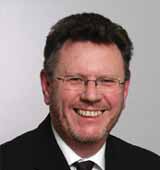|
Executive Interviews: Interview with George Wright on Decision Making
May 2008
-
By Dr. Nagendra V Chowdary
 George Wright
George Wright Professor of Management at Durham Business School, UK. 
-
Would fostering dissent (a
constructive dissent) lead to a better
decision-making? Does conflict lead
to better decisions? Or would it be an
unqualified hindrance to decisionmaking?
Dissent is very valuable but has to be
managed and structured. One
method I use is to divide the
management teaminto two halves at
random and assign each half a role.
The role of one of the halves is to
present a recommendation on a
strategic issue and the second half of
the team's role is to critique it the
devil's advocacy approach. Another
way I use is to ask each team to
present contradictory proposals. At
the end of each set of role-plays, I
facilitate the opposing halves to come to a unified set of recommendations.
This set of recommendations is
invariably judged by the participants
to be of high quality. -
Who according to you would be
the best-ever decision-makers in
corporate history? What traits did
they exhibit?
I have to pass on this one. As I said,
the key is a good decision process
not, necessarily good decision
outcomes in the short-run. Since
Universities and the Church are
amongst the longest-lasting
organizations then I believe that the
processes within each are worth
studying. Democracy, also, tends to
be long-lasting and so felt-fairness
may be an important component of
longevity. -
In today's corporate environment
executives are often not willing to be
so decisive, as they fear mistakes and
the resulting fallout.At the same time,
there is zero tolerance for indecision,
lapses in integrity, and, above all,
weakness all of which can be career
ending. How should executives/
leaders engage in a (delicate)
balancing act of decisiveness and
indecision; overconfidence and
insufficient confidence? Would
anticipatory regret hinder
decisiveness?
The key is that good decision
processes do not necessarily result in
good outcome in the short-term.
Imagine that I offered you a bet: A
coin is thown in the air and it either
lands 'heads' or 'tails'. If it land
'heads' I will give you $10 and if it
lands 'tails' you will give me $8. Also,
to take part once in the bet you must
pay me $1. How many times would
you take part? Many people say that
they wouldn't take part at all
reasoning that they could lose $9. For
those who would take part, most
would only take part a few times reasoning that they could be many
dollars down after a few throws of the
coin. But, rationally, you should play
the bet asmany times as you are able
since each gamble has a positive
expectation of winning 50 cents. Of
course, in the short run, you could
lose many hundreds of dollars but in
the long-run you would become
infinitely wealthy. Think about it!
Obviously, it all depend on the degree
of loss that you could bear in the
short run but the general principal
holds true the success of decision
making should be viewed over the
long-run. Most people are, however,
conservative they are loath to take a
risk in the short-run and so rule-out
longer-terms gains! What is the role of business
schools in preparing better decisionmakers?
What specific steps do you
suggest for business schools in terms
of designing their curricula and
delivering focused courses to prepare
better decision-makers?
The key, to me, is to show how
decision aiding techniques can
challenge intuition and facilitate
improved decision-making. These
techniques can range from the
numerical decision analysis,
resource allocation models, multiattribute
value analysis, risk analysis to the behavioral decision
conferencing, scenario planning,
devil's advocacy, dialectical inquiry.
Decision-making courses should
focus on what goes wrong with
individual and group-level decisionmaking
and then show how to put
things right using a mix of
numerical and behavioral techniques,
as appropriate. What kind of decision-making
capabilities is required for different
industries? After all, an FMCG's CEO
needs to make a lot quicker decisions
than either a steel company's CEO or
a cement company's CEO.
I think that the issue has to do with
the degree of turbulence, and also
opportunity, in the business
environment facing an organization.
A small organization can take
calculated gambles to give it the edge.
A larger organization tends to seek
stability and is more like a
supertanker that is hard to turn into a
different direction. The supertankers
need advanced radar systems like
scenario planning that enable them
to see the waters well ahead. The
supertankers need these systems
because of the inertia in the forward
momentum, i.e., the current business
success formula of the organization.
In fact, most of the applications of
scenario planning have been in
businesses where infrastructure
investments are major such as the
oil and airline businesses. How do you think the leader's
personal ethics, emotional quotient
and value system play a role in
effective decision-making?
To me what is called 'procedural
justice' is the key to a successful,
forward-thinking, organization. By
procedural justice I mean that
everyone who has a view on a
decision should get 'air-time' to put
his or her view. By air-time I mean a
truly listening audience of higherlevelmanagers.
This air-time needs to
be structured by the use of an
experienced facilitator who is
empathetic with small group
dynamics. Recall, as I said earlier, that
the basis competitive advantage of an
organization lies in the individual
heads of its managers. The key task
for the leader is to tap into that
resource and to do so requires a
respect for the viewpoints of others.
Also, if an individual manager feels
that his/her viewpoint has had airtime
than that manager feels valuable
and is more likely to play a
subsequent positive role in the organization. In my view, the act of
listening is a key leadership attribute
in today's flat organizations!
|
